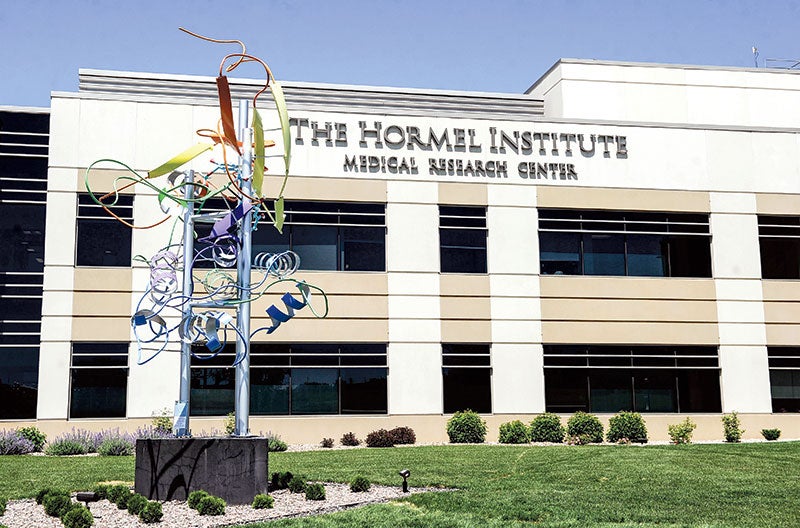Institute scientists publish research on lung cancer in cancer biology journal
Published 6:00 pm Tuesday, November 16, 2021

- Sk. Kayum Alam, PhD. Photo provided
|
Getting your Trinity Audio player ready...
|
November is Lung Cancer Awareness Month, and cutting-edge research into the deadly disease is underway at The Hormel Institute.
The research article titled “DARPP-32 promotes ERBB3-mediated resistance to molecular targeted therapy in EGFR-mutated lung adenocarcinoma” was recently published in the cancer biology journal Oncogene by members of the lab led by Luke Hoeppner, PhD, assistant professor and leader of the Cancer Biology research section at The Hormel Institute.

Luke Hoeppner, PhD, left, and Sk. Kayum Alam, PhD had their research recently published in the journal Oncogene.
Photos provided
“Lung cancer is the leading cause of cancer-related death in both men and women. Each year, more people die of lung cancer than of colon, breast, and prostate cancers combined,” Hoeppner said. “Part of the reason that lung cancer is so deadly is that it is often diagnosed too late in an advanced stage. Therapies are effective initially, but they are not cures – sadly, the cancer usually returns.”
Cancer occurs when mutations arise in specific cancer-causing genes. One of these genes is called EGFR (epidermal growth factor receptor). When people get diagnosed with advanced stage lung cancer, they typically undergo genetic testing to determine whether they have a common cancer-causing mutation in the EGFR gene.
If someone has EGFR-mutation positive lung cancer, they are treated with a drug that targets the mutation in EGFR and effectively kills the cancer cells. This treatment usually works well for one to two years, but eventually lung cancer progression occurs because the tumor cells acquire the ability to resist the treatment. The drug becomes less effective at killing cancer cells because the cancer cells have gained the ability to escape tumor cell death induced by the treatment.
“Our work published in Oncogene focuses on gaining a better understanding of how lung cancer cells develop the ability to escape drug-induced cell death, which leads to lung cancer progression despite the therapy,” Hoeppner said. “The discoveries we made have the potential to lead to improved strategies to prevent resistance to therapy from occurring in lung cancer patients treated with this drug.”
The research was led by Sk. Kayum Alam, PhD, a postdoctoral trainee in Hoeppner’s research group.
“I’m dedicated to researching lung cancer because our work will help lay the groundwork for new therapeutic strategies that will provide hope for patients with this common type of deadly lung cancer,” Alam said.
In addition to Alam, Hoeppner’s team included postdoctoral fellow Li Wang, PhD, former visiting scholar Zhu Zhu, and former Summer Undergraduate Research Experience (SURE) intern Christina Hernandez. Oncologists Mark Klein, MD, of the Minneapolis Veteran Affairs Healthcare System and University of Minnesota and Yongchang Zhang, MD, of The Hunan Cancer Hospital in Changsha, China also made key contributions to this research.
This study was primarily supported by generous funds from The Elsa U. Pardee Foundation. Hoeppner also received seed funding from an Institutional Research Grant from the American Cancer Society and support from The Hormel Foundation to accomplish this work. Hoeppner recently received a $789,000 grant from the American Cancer Society to research small cell lung cancer, another particularly deadly type of lung cancer.




